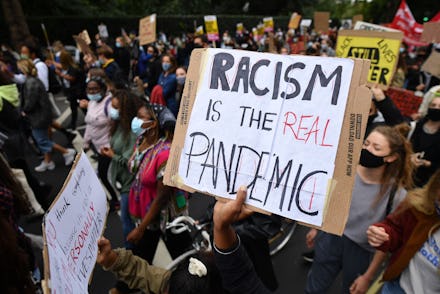Racism has cost the U.S. $16 trillion over the past 20 years

The same day that Wells Fargo CEO Charlie Scharf issued a hasty apology for recently claiming "a very limited pool of Black talent to recruit from" was to blame for the company's lack of diversity, a different banking giant released an ambitious new billion-dollar plan to help close the racial wealth gap — a gap that apparently contributed to a staggering, multi-trillion dollar economic loss for the United States over the past 20 years.
According to Citigroup's just-published "Closing the Racial Inequality Gaps: The Economic Cost of Black Inequality in the U.S.," discrimination and other forms of bigotry and racism have caused the U.S. gross domestic product (GDP) to lose out on $16 trillion since 2000 — the overwhelming bulk of which the company traced to discriminatory lending for Black business owners and entrepreneurs and the jobs that were never created as a result.
"The analysis in the report that follows shows that if four key racial gaps for Blacks — wages, education, housing, and investment — were closed 20 years ago, $16 trillion could have been added to the U.S. economy," Raymond McGuire, a company vice chairman and the chairman of Citigroup's Banking, Capital Markets, Advisory team, wrote in an introduction to the study. "And if the gaps are closed today, $5 trillion can be added to U.S. GDP over the next five years."
That number, while significant, would still represent just a fraction of the overall United States GDP, which was over $19 trillion in just the second quarter of 2020.
Still, the bank has identified several avenues to help address the stunning inequalities identified in its study, including investing in black homeownership, entrepreneurship, and expanding lines of credit and banking opportunities to black patrons.
"We are in the midst of a national reckoning on race, and words are not enough," Citi CFO Mark Mason said in a press release accompanying the study and plan. "We need awareness, education and action that drive results."